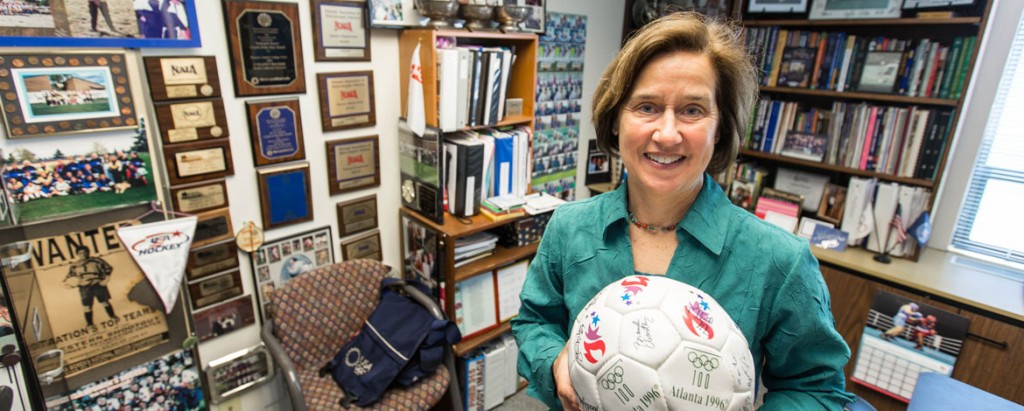Page 260 • (2,856 results in 0.027 seconds)
-
not have that luxury. When she left, Ford felt like a failure abandoning the group. Years later, she heard from the leader of the group that the Kenyan community was doing well. She thinks her brief time with the group, and the training and support she provided, were just what they needed to stick together long enough for them take the next step. “You just never know what your impact is going to be,” Ford explained. “Maybe it was small … but maybe my work with the youth group helped them get to
-
at a street market than out of a catalogue, where prices were jacked up by 300 percent. Her staff were “voracious” learners, and quickly trained up. But she often found that doctors and nurses went right from the American equivalent of high school, straight into a specialty for the next six years. There was very little general medical or science training. There were also the cultural differences. Doctors were expected to take one look at a patient, and know instantly what was wrong. To simply say
-
progressed and, in the end, at conference, I felt I had a good chance.” “Jay came in this year after a strong first season, and continued training in the off season,” said Allison Kolp, who served as PLU’s interim head coach while Johnson took a year off because of illness. “We were able to push Jay in practice further than we did last year and increased his distance in the pool significantly. Jay knew what he needed to do this year, and he was able to swim smarter races, which comes from experience
-

personal stories that made this problem so important and personal for me. Read Previous Composing for the cannery: of boxcars, rhinos, and grapes Read Next First Aid/CPR/AED/BBP training COMMENTS*Note: All comments are moderated If the comments don't appear for you, you might have ad blocker enabled or are currently browsing in a "private" window. LATEST POSTS Three students share how scholarships support them in their pursuit to make the world better than how they found it June 24, 2024 Kaden Bolton
-

U.S. defeated Canada in overtime, with only one day on the ice before the tournament started. “They had a confidence and a belief and tenacity and sense of mission of purpose,” Hacker said. “And I think that overcame all the traditional impediments that would keep a team able to perform on the world stage in a sold-out rink 24 hours later.” So why does Hacker stay at PLU, especially when she has a full-time job training history-making Olympic athletes? “I must get asked that about 400 times a
-

because the performers’ experience is also different every time.” It’s this excitement, freedom, and creativity that drew Vianna to jazz music. He began his musical training as a child in classical music playing the organ and piano. But growing up in Rio de Janeiro, Brazil, he was surrounded by Latin music and found Brazilian Jazz — a genre that shares the improvisatory, groove-based nature of jazz music but is infused with Latin rhythms—as a teenager. “My first meaningful experiences as a jazz
-

paper, “The Unacknowledged and Underfunded Fight for Women’s Empowerment in Indonesia,” covers her research and interviews on domestic violence, sexual assault, and abortion within Yogyakarta, Indonesia. While researching, she also interned at a women’s interfaith organization through the School for International Training (SIT) study abroad program.The Person Behind the ProjectBeeson is an experienced traveler, having spent most of her summers with family in Taiwan. Beeson formed a bond with an
-
and went on to complete a second major in Communications/Journalism. After college, she happened upon an editing job with Thomason Reuters, where she enjoyed training co-workers in one-on-one situations. After four years, she realized she was no longer being challenged. She wanted to teach creative writing and proceeded to get a Master of Fine Arts in this area.In 2010, after having taught as an adjunct for two years, Professor Michal was invited by a national academic association to participate
-
allowed in locations or situations other than those noted as allowed in the previous section. Such areas of campus where pets are not allowed include: Areas that are open to the public and commonly used, such as libraries, foyers, bathrooms, copy rooms, lounges, meeting and conference rooms, except as necessary to travel en- route to permitted locations. Classrooms and training labs (except for instructional purposes as noted above). Dining and food preparation areas; kitchenettes; break-rooms
-
will coordinate and conduct periodic training sessions regarding measures to prevent violence, recognizing early warning signs of a troubled or potentially violent person, and procedures for responding to and reporting such incidents. Office Phone / Contact Numbers Contact For Campus Safety Emergency, dial 7911 Non-emergency, 253-535-7441 Emergency assistance Filing University Violence Prevention Report Forms Human Resources 253-535-7187 (Director) 253-535-7185 (Front Desk) Consultation for
Do you have any feedback for us? If so, feel free to use our Feedback Form.


